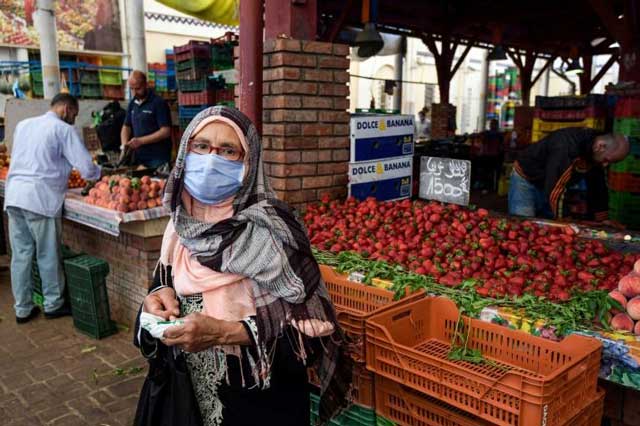
Algiers, Algeria | AFP | North Africans say they are missing the taste of Ramadan, as coronavirus restrictions deprive them of traditional mealtime gatherings, evening outings and beloved sweets during the Muslim holy month.
“It’s not the usual Ramadan,” said one woman shopping in Ariana, near the capital Tunis, looking desperately for the cakes and sweets that normally fill the stalls during the fasting month.
Ramadan is traditionally a time for worship and socialising.
The faithful refrain from consuming food and water during the day, breaking their fast at dusk with family and friends for a meal known as iftar, and often going out afterwards.
But this year, social distancing measures have largely put a stop to the usual Ramadan traditions.
Mosques in Algeria, Morocco and Tunisia have been closed to curb the spread of the novel coronavirus, preventing special evening prayers.
There are no long nights of musical gatherings, and in the medina of Tunis, there are no Sufi-inspired “hadra” chants and no “stambali” — a mystical trance dance ritual.
The old cities of Rabat, Casablanca and Tunis, normally crowded after iftar, are like ghost towns.
“Even the meals that bring all the family together around the same table are impossible — I’m afraid for my parents, who are elderly and sick”, said Maissa, a 46-year-old teacher from Algiers.
“The coronavirus has taken all the flavour out of the holy month this year,” said the mother-of-four.
– ‘Unprecedented’ –
In Morocco, dates — a Ramadan staple — and sweets are still available at the markets or in supermarkets.
“But I can’t travel to have iftar at my parents’ place” due to the night-time curfew, lamented one 35-year-old teacher who lives alone in Marrakesh.
“No cafes, no people in the mosques… it’s unprecedented”, he said.
In Algeria, after businesses were allowed to reopen at the start of Ramadan in April, crowding led authorities to reimpose closures in some areas.
Some in the capital Algiers travelled to Boufarik — around 30 kilometres (18 miles) away in Blida province, the epicentre of the country’s virus outbreak in early March — for a sugary sweet known as zlabia.
One man, Salem, said that in 30 years he had never failed to have zlabia from Boufarik on the table for Ramadan, but this year he came back empty-handed.
“Most of the stalls are closed and those that are open are crowded, so I turned back”, the 51-year-old said.
Authorities in Algeria have even prohibited community restaurants and soup kitchens where volunteers serve meals to the poor during the holy month.
Fekhreddine Zerrouki said his charity organisation had planned to serve more than 1,500 meals a day, but was doing deliveries instead.
Samir, a volunteer with the Algerian Red Crescent, said the number of people benefiting from such Ramadan charity initiatives was “very low compared to the number of people in need”.
“We are missing the taste of Ramadan because of the lack of zlabia or the lost evenings, but some people don’t even have dates for breaking their fast”, he said.
 The Independent Uganda: You get the Truth we Pay the Price
The Independent Uganda: You get the Truth we Pay the Price



